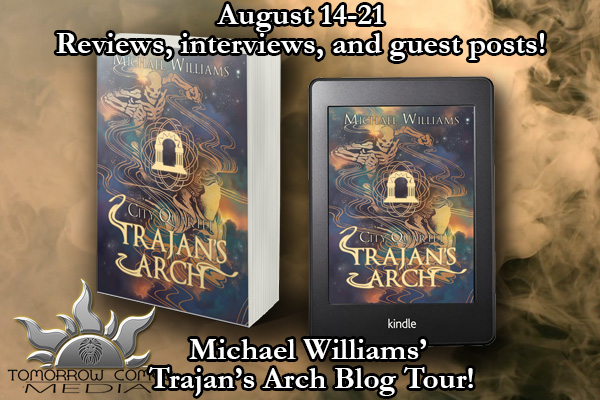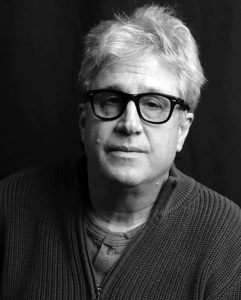
There is the standing joke about not checking the search history of a writer. Questions, often of a criminal nature, find their way into long, damning lists (How to dispose of a body? or domestic terrorist organizations or importing poisonous animals might pop up in histories of friends), as writers research things that, given our more sedentary and timid natures, we probably don’t know first-hand.
This research is usually for the obvious purposes. Writers anchor themselves in plausible fictional worlds, creating a kind of dream they invite the reader to share, and any time the dream veers unnecessarily and unintentionally from plausible stuff, you’ll have a reader out there who knows the terrain: when your errors emerge, there’s a reader out there who’ll catch them, whose whole absorption in the book is punctured by your ignorance of what you may have thought was a small matter, but becomes enormous to the reader who knows you’ve made the mistake, then begins to speculate that if you’ve made a mistake he knows about, what is keeping you from others?
When I found out how to tap a telegraph wire, I resolved I’d be damned if I didn’t use all that reading and consultation and leg work in the piece of fiction I’d researched it for. Then discovered, of course, that parts of my newfound knowledge deflected from the power and dream of the story—that if I talked about this fascinating subject for as long as I wanted to go on with it, my readers would forget what was going on in the book.
How reliable, in short, is the world you’ve created?
So, for the most part, research guides you through uncertain country, maps out the signposts so you can steer the reader’s belief in the story around swamps and sinkholes and perilous bluffs. That’s why I spent days researching how to tap a telegraph wire—because I both dreaded and respected that informed reader who’d have the information, who was trusting me to unfold the story and whose trust I needed to have for my fiction to work.
It’s also why I steer away from technical passages on firearms in my books. I grew up around guns, but they held little interest for me, and when they come into play in my stories, it’s always with reluctance that I bring them up, because somewhere out there are a dozen readers whose version of the way that a specific gun works is both authoritative and enough different from the other authorities to cause disputes. For which I am blamed, and my story is discredited.
In short, you can’t be a thorough-going font of specific knowledge, but you can do your best. And when you do your best, it often patches the worst holes in narrative detail, thereby making the dream of your fiction more vivid and plausible.
But the practical benefits of research are only part of the reason I’m doing it constantly. Good research not only patches my ideas, but it gives me new ones. The older I get, the more I glimpse the vast interconnectedness of all the things I learn—how a discovery, say, of a particular medical phenomenon might take my thoughts back to an historical moment that might have only a metaphorical connection to medicine, or to an architectural structure or to a move in a chess game. What this kind of research does, if you enter it openly, is bend or disorder what you expected. It’s research in the romantic/academic vein—research as discovery and poetry and play.
And there are always dangers special to this kind of research. It’s like the lotus-eaters of the Odyssey, where you bite into the plant and want to stay on the island forever. For why write when there’s all these good things to discover?
Then you recall that writing is discovery as well. That it is poetry and play and insight, and that such pleasure are why you got into it in the first place.
And the other principal danger is the temptation to use it all.
Nowadays, I couldn’t even tell you what I learned about the telegraph. But no knowledge you gather dies unheeded or untransformed: it lies fallow for years, or floats out to connect with something far-fetched and more useful and wonderful. Knowledge is the parent of playfulness, which is the parent of knowledge.
So cut perpetual slack to search histories. And above all, don’t erase them: we’re going to revisit them in a month or two.
Trajan’s Arch by Michael Williams
Gabriel Rackett stands at the threshold of middle age. He lives north of Chicago and teaches at a small community college. He has written one novel and has no prospects of writing another, his powers stagnated by drink and loss. Into his possession comes a manuscript, written by a childhood friend and neighbor, which ignites his memory and takes him back to his mysterious mentor and the ghosts that haunted his own coming of age.
Now, at the ebb of his resources, Gabriel returns to his old haunts through a series of fantastic stories spilling dangerously off the page–tales that will preoccupy and pursue him back to their dark and secret sources.
Michael Williams

Over the past 25 years, Michael Williams has written a number of strange novels, from the early Weasel’s Luck and Galen Beknighted in the best-selling DRAGONLANCE series to the more recent lyrical and experimental Arcady, singled out for praise by Locus and Asimov’s magazines. In Trajan’s Arch, his eleventh novel, stories fold into stories and a boy grows up with ghostly mentors, and the recently published Vine mingles Greek tragedy and urban legend, as a local dramatic production in a small city goes humorously, then horrifically, awry.
Trajan’s Arch and Vine are two of the books in Williams’s highly anticipated City Quartet, to be joined in 2018 by Dominic’s Ghosts and Tattered Men.
Williams was born in Louisville, Ky. and spent much of his childhood in the south central part of the state, the red-dirt gothic home of Appalachian foothills and stories of Confederate guerrillas. Through good luck and a roundabout journey he made his way through through New England, New York, Wisconsin, Britain and Ireland, and has ended up less than thirty miles from where he began. He has a Ph.D. in humanities and teaches at the University of Louisville, where he focuses on the modern fantastic in fiction and film. He is married and has two grown sons.

Ah, yes, plunging down the rabbit hole. I know where various precious and semi-precious stones are formed because I wanted certain people to only value things from far away when there were equally precious things available locally. Only somebody ELSE who knows where those stones come from realize that, but it isn’t necessary to know it. It’s enough for me that *I* know it.
In reading your wonderful work, I constantly feel there are depths beyond depths in them, that they contain worlds of knowledge within them that I don’t need to know but that you know. If this is not the case, you got me fooled but good, pal!
Factual discrepancies (especially related to guns) definitely can send readers into a tizzy. Even more contentious-I’ve found-are genre readers who go ballistic over unmet trope expectations or history buffs who do the same over minor details.
But like Mickey Lolich told Norm Cash after the Tigers beat the Cardinals in the ’68 WS: “All’s FAIR in love and baseball when the ball hits the bag.”⚾